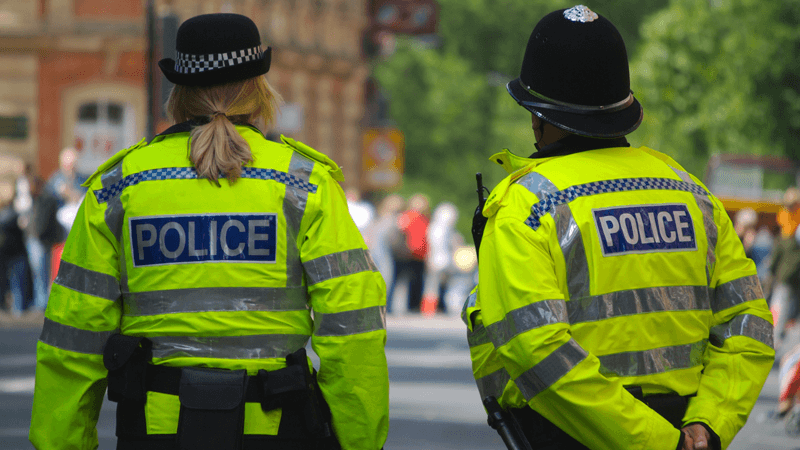A free speech group has accused the College of Policing of “inventing” hate offences, and acting like “judge and jury”.
The Free Speech Union (FSU) published a report on ‘non-crime hate incidents’ (NCHI), which the College classifies as “any non-crime incident which is perceived by the victim or any other person to be motivated by hostility or prejudice”.
These accusations can show up if prospective employers carry out DBS checks, despite no crime having been committed. The FSU says recording such incidents goes beyond normal police intelligence and has a chilling effect on free speech.
‘Highly subjective’
The report highlights the “highly subjective” nature of recording the incidents, saying: “The victim does not have to justify or provide evidence of their belief for the purposes of reporting, and police officers or staff should not directly challenge this perception.
“It must be clearly understood that evidence of an offence is not a requirement for a hate incident to be recorded. There is no evidential test as to what is or is not a hate incident.”
It continues: “The practice of recording NCHIs suggests the police and the College of Policing believe there should be stricter limits on free speech than Parliament has provided for and are imposing these limits themselves.”preventing people ‘questioning the identity’ of various groups
Shockingly, the report notes one police force justified NCHIs by saying that “‘the role of British police today goes beyond bringing offenders to justice when they commit crimes’, and includes preventing people ‘questioning the identity’ of various groups.”
Unapproved
Toby Young, General Secretary of the FSU, said that in creating NCHIs the College is “guilty of inventing a new category of wrongdoing which has neither been debated or approved by Parliament.
“Worryingly, the guidance compels the police to investigate every allegation, even when there is no evidence a crime has been committed.
“These non-offences are then recorded on police databases, sometimes without the knowledge of the alleged perpetrator, potentially blighting their career, especially if they require an enhanced DBS check, such as teachers, doctors, nurses and even police officers.”
Blunt instrument
Young continued: “Given their broad remit and catch-all approach, NCHIs are a blunt and unnecessary instrument that suppress free speech.
“They criminalise ordinary people for making a joke in bad taste on Twitter, as well as journalists, politicians, academics, comedians – even commentators discussing controversial areas of public policy.
He concluded: “NHCIs effectively criminalise someone saying something offensive even when it is not intended to offend or is part of robust political or academic discussion. They should be scrapped.”
‘No actual victim’
The report’s author, Dr Radomir Tylecote, said: “Between 2014-2019, thirty-four police forces recorded almost 120,000 NCHIs, roughly 65 per day.
“Astonishingly, the police have to investigate all complaints even if there is no actual victim. This is a standard that applies to no other crime and is suppressing free speech.”
Police having ‘chilling effect’ on debate amid 120,000 allegations of ‘hate speech’
Police force continues to mislead public on ‘hate crime’ despite apology
Free speech campaigners critical of report on ‘hateful extremism’


